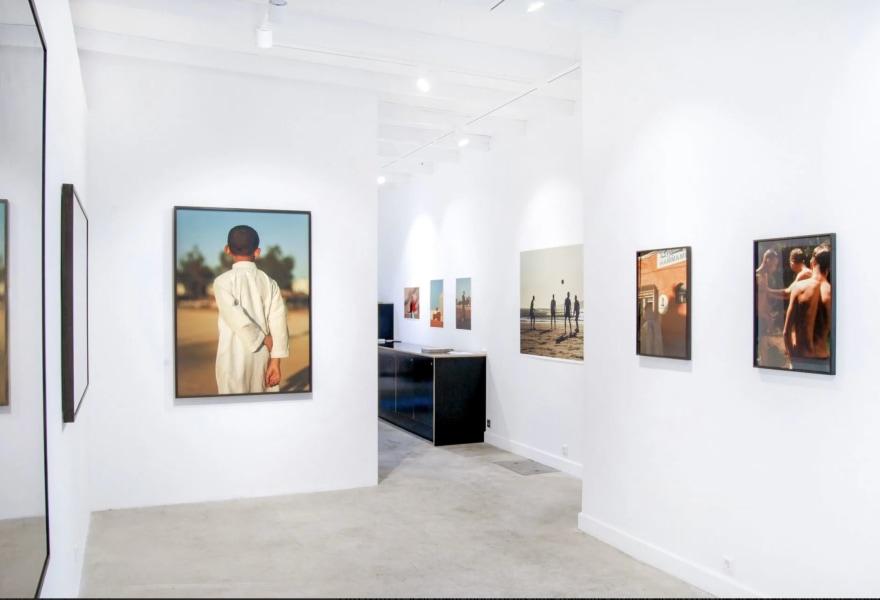13 may 2024, Wouter van den Eijkel
Dreamland - Mounir Raji
Ask someone about their happiest or most beautiful memories and chances are they'll start talking about a holiday. Perhaps the one last summer or it may very well be a trip from ten years ago. Often, it's about the feeling of freedom: being free from work and obligations, the sun is shining and you can spend the entire day at the beach or local ice cream parlour. For many Dutch and Belgians with an immigrant background, there's an added layer to this. During their holiday, they visit the country of their parents and grandparents.
Mounir Raji (1982) grew up in the Zaanstreek and spent every summer break in Morocco in the village where his parents were raised. Every summer, he was surrounded by family, friends and acquaintances for six weeks. "It's like the perfect world: the weather is great, you're with family, they have time for you and are extra kind to you because you're only there once a year," Raji says over the phone. "When you leave again, it hurts. When it rains in the Netherlands or you're not asked to a job interview, it’s hard not to start romanticising Morocco." A dreamland built from nothing but beautiful memories and not entirely consistent with reality, but not far from it either.
Conversely, Raji and his parents also created a dreamland for his family and friends in Morocco, he realises. "Every summer, we arrived there with new clothes, gifts and a new car. For them, Europe is a kind of dreamland. They only see those gifts, while our lives here are governed by a schedule. We have to do a lot, while everyone there seems to have time for you."

Mounir Raji, Man watching football, 2017, Galerie Caroline O'Breen
Dreamland
Raji didn't limit Dreamland to his family and acquaintances alone. When he wasn't working on commercial assignments in the past five years, he travelled across the country. The first series of Dreamland was already shown three years ago at the photo festival in Naarden. Yallah, Arabic for let's go, shows scooter riders at a crossroads in Marrakesh, all taken from above and from the same perspective. Sometimes alone, other times in pairs or with the entire family, with bags of rice or a big box, in djellaba or in slippers and shorts, with the scooter as a metaphor for the pragmatic Moroccan mentality.
In the documentary accompanying the book, renowned book designer Sybren Kuiper praises Raji's work for the tranquillity and consistent atmosphere of the images. Raji explains that the consistency is partly due to working at the same times of day. "Every day between 7 and 10 in the morning and between 4 and 7 in the afternoon. At those times, it's not only bearable in terms of temperature, but you also have the most attractive light." It gives the images deep colours and long shadows, enhancing the nostalgic effect.
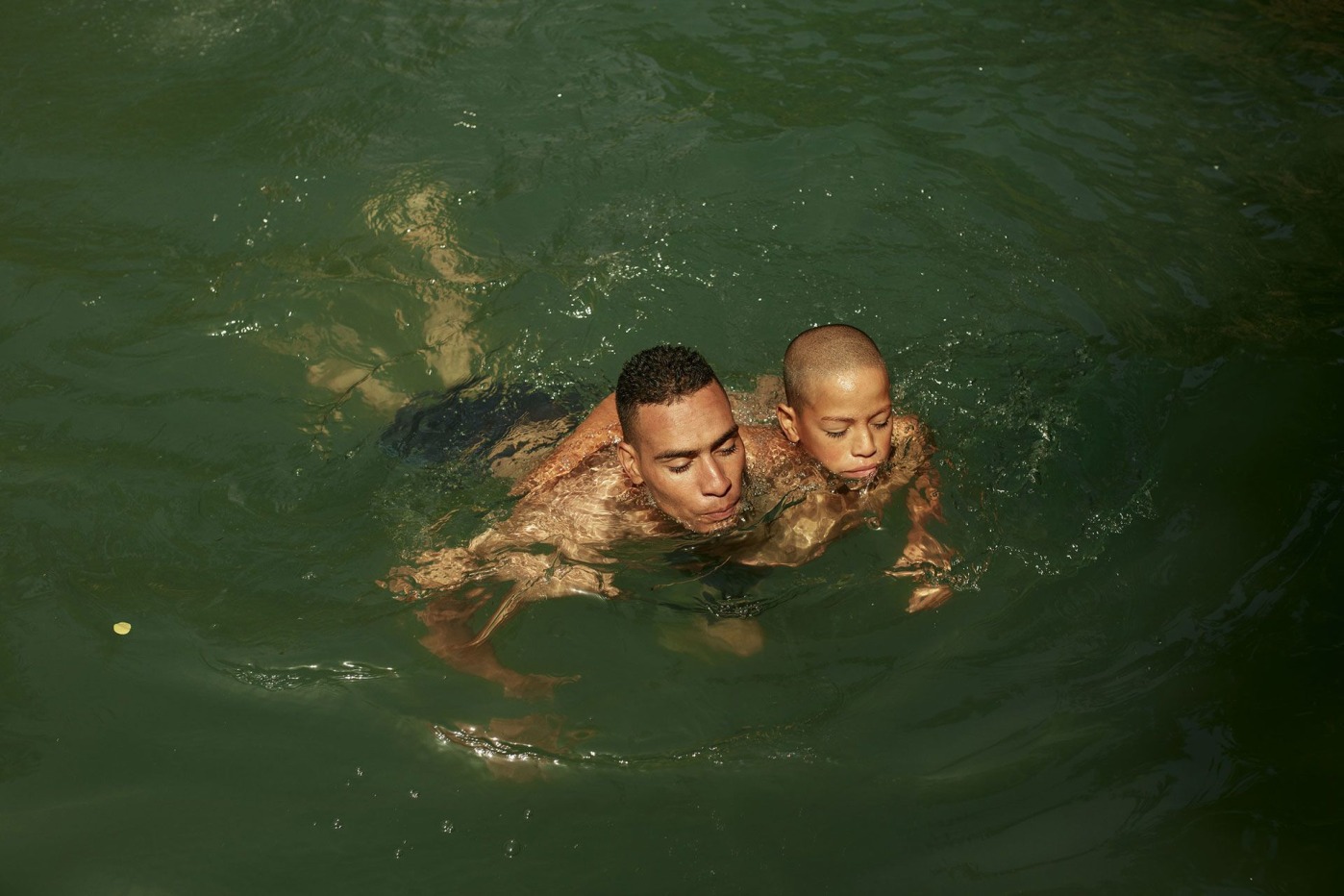
Mounir Raji, Boys swimming, 2019, Galerie Caroline O'Breen
Why am I not there?
What sets Raji's photos apart from other photographers who have travelled to Morocco is his ability to connect with the people in the pictures. While other photographers saw the country through the lens of an outsider – resulting in an attractive visual travelogue or images that confirm Western clichés about Morocco – Raji knows it from the inside out. "I missed something in the books made by others," says Raji, "I didn't see the Morocco I knew and thought, why am I not there?"
A few years earlier, Raji had been given the opportunity to photograph the French overseas territory of New Caledonia on his own terms for Air France. Watching and improvising suited him well. When Raji decided in 2017 to not only work on commission, he went to Morocco and used the same approach.
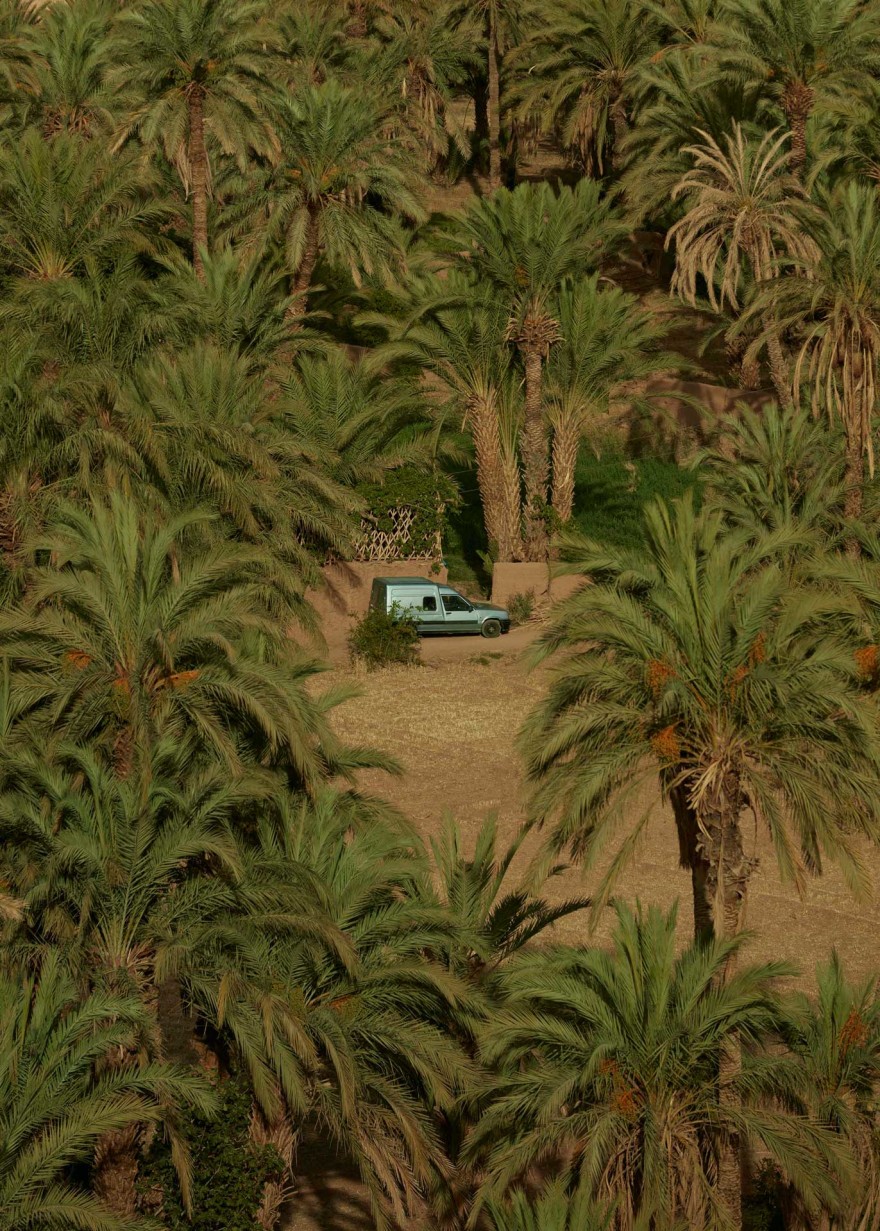
Mounir Raji, Car & Palmtrees, 2019, Galerie Caroline O'Breen
Initially, the idea was to photograph shadows on walls, but Dreamland became much more intimate. Along the way, he chatted with people on the street and asked if he could take their picture. This results in tender scenes: a swimming father with a son, an older man in djellaba watching children playing soccer on a small field, boys with their scooters by a river and a young boxer on a beach looking proud yet vulnerable. "In Dreamland, I show the beautiful side of Morocco. I try to address things that I find important in life, like family, friends and the sun."
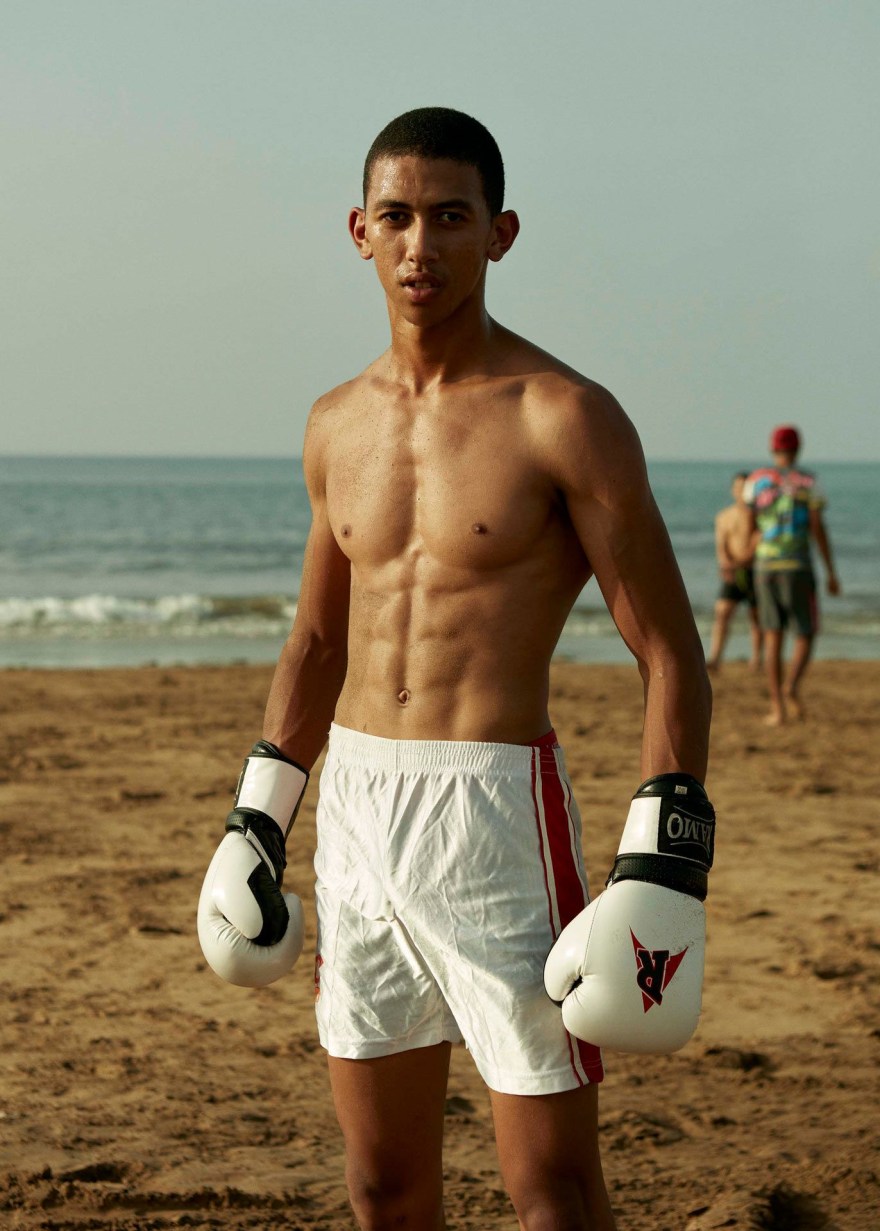
Mounir Raji, Boxer Mehdi, 2017, Galerie Caroline O'Breen
A sailing utopia
The theme of escapism is not entirely new for Raji. Earlier, he was commissioned by the Rijksmuseum to create the series Perfect Day, in which he travelled on a cruise ship from Aruba to Curaçao, a sailing utopia where comfort and entertainment are key features. At least for the passengers, not the crew. The series shows both sides of this industry.
In future series about Morocco, Raji also wants to address more social themes, such as the consequences of climate change in Morocco. Here, too, the starting point is close to home: the river in his grandmother's village is now dry, which has major consequences for the locals.
Mounir Raji's Dreamland can be seen at Galerie Caroline O'Breen in Amsterdam until 25 May.
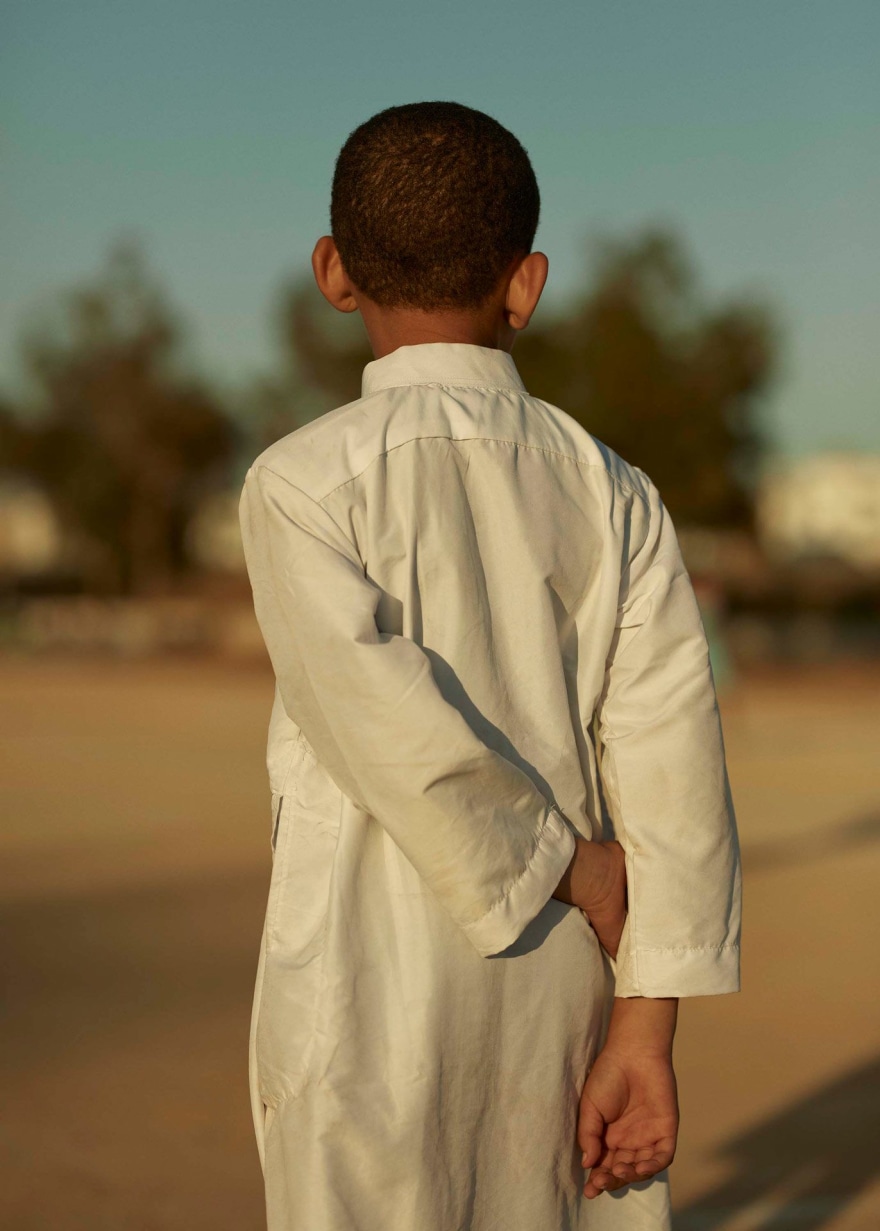
Mounir Raji, Coverboy, 2017, Galerie Caroline O'Breen
